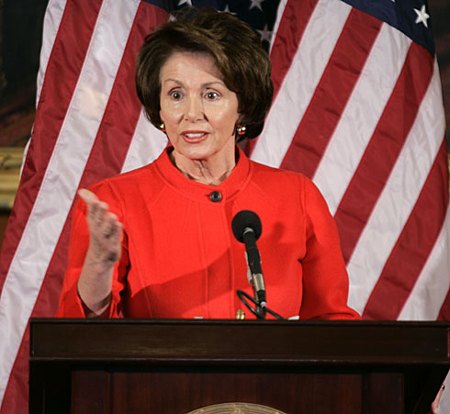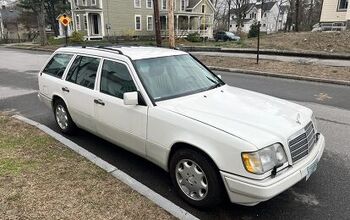New CAFE Rules A Sham?
The internet is abuzz over the White House's threat to veto the Energy Bill, what with Congress failing to hit the Prez' target for alternative fuels (35b gallons by 2017), neglecting to resolve the issue of who controls Corporate Average Fuel Economy (CAFE) and automotive emissions standards (the Environmental Protection Agency or the National Highway Traffic Safety Administration) and the unwelcome caveat (at least to coal producing states) that electricity suppliers have to generate 15 percent of their power by 2020 using renewable sources. Meanwhile, The New York Times reports the startling news that legislators have opted for vehicle footprint-based CAFE standards– as opposed to fleet-wide average. As we pointed out back in May, the "sliding scale" footprint-based system is a game changer that completely games the system in Detroit's favor. (As we know footprint calculations would hurt the United Auto Workers, and UAW-supported House Speaker Nancy Pelosi has added union protections to the Energy Bill, it seems likely footprint is a go.) Combine that with ethanol credits and the current methodology used to calculate CAFE mpgs (not the same as sticker mpgs), and the whole 35mpg by 2020 misegos could be nothing more than not a lot more than what we already got. As if you didn't suspect that already.
More by Robert Farago


































Comments
Join the conversation
jthorner, I assumed Glenn is not an idiot, so I assume he knows about the 16th amendment. If you want an interesting bit of history you can look into how our Congress made that mistake. It is a story that repeats all to often in many of our present laws. KBW, Please reread the 2nd Amendment. Had they written it that way, we would be constantly trying to fight off an Amendment to change that Amendment. Instead, we have the present battle over what THE clause means. Without getting out a copy, and going over all the history of all the amendments, I will just say as an example which you mentioned, the freeing of the slaves. Great idea, bad execution. That amendment, has been used for other purposes and reinterpreted several times by several courts.
"The meaning of languages changes. The original meaning is clear as day to anyone who knows the historical context." Well, I guess you settled it then? Sorry, but had they left out the militia clause it would still be clear. Since they put it in, it never was. Should have been left out. Lawyers were even worse then than now. They should have known. OTOH, you are right about the 13th. I was thinking about the 14th. They all get clumped together. It's clear as mud. It has been the center piece of so many Supreme Court disputes that arguing that it is clear is silly. If it were so clear, why does it always end up being argued? IMO, the legislatures do a really lousy job of writing these things. Everyone one of them thinks that surely we ALL know what they mean. As if every law on the books didn't suffer from the same malady.